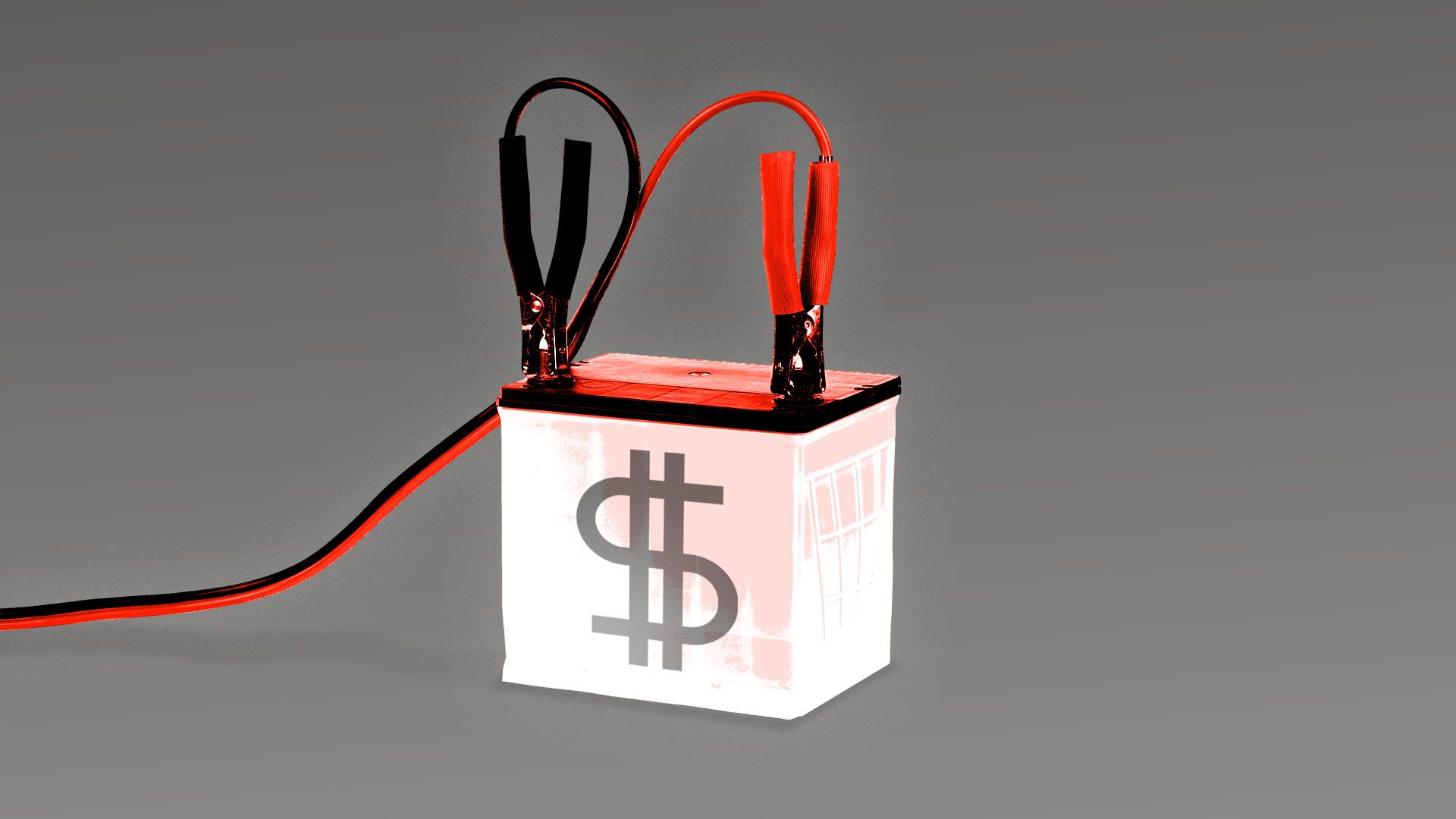A wave of showy AV deals
Add Axios as your preferred source to
see more of our stories on Google.

Illustration: Sarah Grillo/Axios
Waymo has inked an exclusive partnership with the giant Renault-Nissan Alliance on autonomous vehicles, the latest in a dizzying array of headline-grabbing deals in the AV space.
The big picture: Carmakers and technology companies need to work together on self-driving cars because neither industry has the expertise to do it alone.
- But some so-called partnerships lack substance or seem to be driven as much by ambition and the need for credibility and capital as they are by true commercialization efforts.
No one would argue Waymo lacks credibility — it is widely considered a leader in autonomous technology — but its partnership with Renault-Nissan to take its technology to "a global stage" seems a bit of a stretch.
- The deal is exclusive only "for an initial period" and is limited at this point to researching commercial, legal and regulatory issues in France, Japan, and potentially, China.
- For Renault-Nissan, it is being portrayed in Europe as a salve between two bickering alliance partners in the wake of a failed merger with Fiat Chrysler Automobiles and the downfall of former CEO, Carlos Ghosn.
Between the lines: In a field as competitive as self-driving cars, it's instructive to pay attention to the language of partnership announcements and to the motivations behind them. This is especially true among lidar technology companies, for example, that are fighting for attention and hungry for investment.
- Amid a glut of lidar manufacturers, companies often tout their "partnerships" with major carmakers.
- What they usually mean is the carmaker is testing a handful of their lidar units on its pilot vehicles.
- Though far from revenue-generating production contracts, such announcements could be parlayed into big investments if the companies are perceived as hot.
Not all partnerships are equal. Some are just a MOU — memorandum of understanding — signaling an intention to move forward on something more substantive, but not a legal contract.
- One recent example is Aurora Innovation's deal with Fiat Chrysler Automobiles to develop self-driving commercial vehicles.
- But MOUs typically expire or fall apart, as in the case of a similar partnership Aurora had with Volkswagen for the past 18 months. (It's also working with China's Byton and Korea's Hyundai-Kia, which just pumped about $70 million into Aurora.)
- In a blog post earlier this year, Aurora explained it preferred working with multiple carmakers rather than being locked into an exclusive deal so it could deliver its technology more broadly.
- But it's hard to imagine Aurora's relationship with Volkswagen, the world's largest automaker, wasn't a factor in securing a $530 million investment led by Sequoia Capital in February, at a $2 billion valuation.
Be smart: Unless money and board seats are involved, partnerships can be fleeting. Where big money is involved — as in the billion-dollar-plus investments made in Cruise by GM, Argo by Ford and Uber by Toyota — it's serious.
